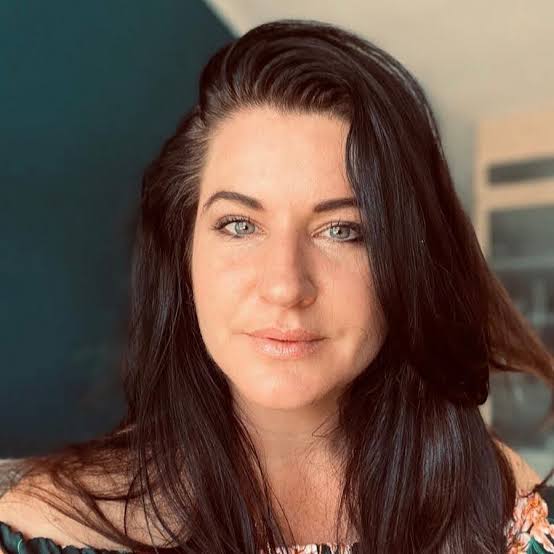Forgiveness Practices

Forgiveness Practices
What are Forgiveness Practices?
Forgiveness practices involve the intentional and conscious process of releasing resentment, anger, or bitterness towards oneself or others for past hurts and wrongdoings. These practices emphasize that forgiveness is not about condoning harmful actions or forgetting what happened, but rather choosing to let go of the negative emotions that hold one back from inner peace and healing.
How Can Forgiveness Practices Help You?
Forgiveness practices can benefit individuals by:
- Releasing Emotional Burdens: Help let go of anger, resentment, and bitterness, reducing emotional load and promoting inner peace.
- Improved Mental Health: Contribute to decreased anxiety, depression, and stress levels.
- Physical Health Benefits: May positively impact cardiovascular health, immune function, and overall physical well-being.
- Healing Relationships: Facilitate a path towards reconciliation and mending damaged relationships, when appropriate.
- Self-Compassion Cultivation: Essential for forgiving oneself for past mistakes and promoting self-acceptance and personal growth.
What are Forgiveness Practices Good For?
Individuals may seek Forgiveness practices for the following reasons:
- Overcoming Past Hurts: Processing and moving on from betrayal, abuse, or deep-seated resentment.
- Letting Go of Grudges: Releasing long-held anger and bitterness that hinders present-moment happiness.
- Self-Forgiveness: Practicing self-compassion and forgiving oneself for past actions or perceived shortcomings.
- Reconciliation: In appropriate situations, forgiveness can be a step towards rebuilding relationships.
- Spiritual Growth: Rooted in various spiritual traditions, forgiveness is a path to spiritual practice and inner cultivation.
Benefits of Forgiveness Practices
Potential benefits associated with Forgiveness practices include:
- Reduced Stress and Anxiety: Releasing negative emotions can lower stress hormones and promote relaxation.
- Improved Mood: Letting go of anger and resentment often leads to greater feelings of peace and happiness.
- Stronger Relationships: Facilitates healthier communication and the possibility of reconciliation.
- Greater Self-Awareness: Forgiveness promotes introspection and self-understanding, encouraging personal growth.
- Enhanced Compassion: The process of forgiveness can deepen compassion for oneself and others.
What to Expect with Forgiveness Practices
Forgiveness practices can be explored individually or with guidance:
- Self-Directed Practices: Include journaling, guided meditations, forgiveness letters (written but not necessarily sent), and rituals.
- Counseling and Therapy: Therapists support individuals in processing painful emotions, developing self-compassion, and practicing forgiveness.
- Support Groups: Offer a space for shared experiences and support surrounding forgiveness journeys.
- Spiritual Guidance: Many faith traditions offer teachings and practices on forgiveness.
Similar Modalities to Forgiveness Practices
Other modalities share similarities with Forgiveness practices by focusing on emotional release and healing.
- Compassion Practices: Cultivate kindness and understanding towards oneself and others.
- Mindfulness Meditation: Develops non-judgmental awareness, aiding in accepting difficult emotions for processing and release.
- Ho’oponopono: A Hawaiian practice of reconciliation and forgiveness.
- Trauma-Informed Therapies: Geared towards healing from emotional wounds while practicing compassion and self-care.
Final Thoughts
Forgiveness practices offer a powerful pathway towards emotional healing, inner peace, and personal growth. While the forgiveness journey can be challenging, choosing to release the burden of resentment and bitterness creates space for greater well-being, compassion, and healthier connections with oneself and others.
Scientific References
- Toussaint, L., & Webb, J. R. (2023). The assessment of forgiveness: A review of measures. Current psychology : a journal for diverse perspectives on diverse psychological issues, 42(2), 1189–1207.
- Toussaint, L., Worthington, E. L., & Williams, D. R. (Eds.). (2015). Forgiveness and health: Scientific evidence and theories relating forgiveness to better health (1st ed.). Springer Science & Business Media.
- Worthington Jr, E. L., Hunter, J. L., Sharp, C. B., Hook, J. N., Van Tongeren, D. R., Davis, D. E., … Gartner, A. L. (2023). Randomized controlled trial of group forgiveness interventions to reduce anger and aggression in adults. Journal of Consulting and Clinical Psychology, 91(2), 214–226.
Recommended Reading
- Smedes, L. (2000). Forgive and Forget: Healing the Hurts We Don’t Deserve (Revised ed.). Pocket Books.
- Enright, R., & Fitzgibbons, R. (2015). Forgiveness Therapy (1st ed.). APA Life Tools
- Tutu, D., & Tutu, M. (2014). The Book of Forgiving: The Fourfold Path for Healing Ourselves and Our World (1st ed.). Avery.
FAQ: Forgiveness Practices
Does forgiveness mean forgetting what happened?
No, forgiveness is about releasing negative emotions tied to the memory, not denying the event.
Does forgiveness mean condoning the action?
No, one can acknowledge the wrong done while choosing to release resentment towards the offender.
Do I have to reconcile with the person to forgive them?
No. Forgiveness is an internal process, and reconciliation may not be possible or safe.
How long does the forgiveness process take?
There’s no set timeline. Significant emotional wounds may require ongoing practice and support.
Can I forgive myself?
Yes, self-forgiveness is a crucial part of the process. Focus on self-compassion and learning from mistakes.
Related Practitioners
Farrah Weir. I am.
Empower Your Journey, Heal Your Soul, Ascend Beyond Limits with Quantum Healing
- Johannesburg, City of Johannesburg Metropolitan Municipality, Gauteng, 2001, South Africa
- (678) 210-5270
Farrah Weir is a quantum surgeon, cosmic and conscious life coach, and intuitive medium dedicated to helping individuals heal trauma,… Read More
Helena Fleming B.A., M.A. LIC I.S.H, RHOM
HOMEOPATHY & BIORESONANCE
- 3 Meadowbrook, Tulsk, Co. Roscommon, F45 FH97, Ireland
- (678) 210-5270
I am a homeopath and bioresonance practitioner with 27 years experience. I combine a classical approach to homeopathy with state-of-the-art… Read More

















